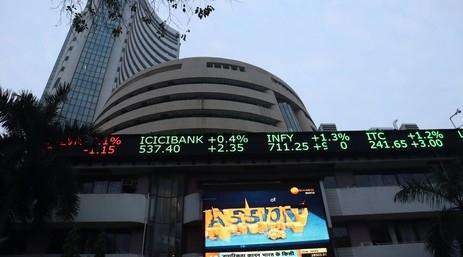How does nifty and bank nifty index move ?
How does nifty and bank nifty index move – The Nifty 50 and the Bank Nifty are stock market indices in India that provide a representation of the performance of the top 50 and top bank stocks, respectively, listed on the National Stock Exchange (NSE). The indices are calculated using free float market capitalization weighted methodology, where the level of the index reflects the total market value of all the stocks in the index relative to a particular base period.
The movement of the Nifty 50 and Bank Nifty indices is determined by the performance of the underlying stocks that make up the index. If the majority of the stocks in the index are performing well and experiencing an increase in their share prices, the index will also experience an upward movement. Conversely, if the majority of the stocks in the index are performing poorly and experiencing a decrease in their share prices, the index will also experience a downward movement.
However, it’s important to note that the index movement is not solely determined by the performance of individual stocks. There are several other factors that can influence the movement of the index, such as changes in the broader market sentiment, macroeconomic conditions, and global events.
The market sentiment, which is the overall attitude of investors towards the market, can greatly influence the movement of the index. If investors are optimistic about the market, they may be more likely to buy stocks, which can drive up the prices of the stocks in the index and cause the index to rise. Conversely, if investors are pessimistic about the market, they may be more likely to sell stocks, which can drive down the prices of the stocks in the index and cause the index to fall.
Macroeconomic conditions, such as changes in interest rates, inflation, and GDP growth, can also have an impact on the movement of the index. For example, if interest rates are low, it can make borrowing cheaper for companies, which can encourage investment and drive up stock prices. On the other hand, if interest rates are high, it can make borrowing more expensive for companies, which can discourage investment and drive down stock prices.
Global events, such as natural disasters, political upheavals, and major economic announcements, can also have an impact on the movement of the index. For example, if a natural disaster occurs in a major economic region, it can disrupt supply chains and cause companies to experience losses, which can drive down stock prices. Similarly, if a political upheaval occurs in a major economic region, it can cause uncertainty and cause investors to become more risk-averse, which can drive down stock prices.
Technical analysis is also used to predict stock prices. Technical analysts study charts and patterns to identify trends and make predictions about future stock prices. They also pay attention to various indicators such as moving averages, relative strength index and momentum indicators.
Finally, market sentiment can also play a role in stock prices. Market sentiment refers to the overall mood or attitude of investors towards the stock market. When investors are optimistic, they are more likely to buy stocks, which can drive up stock prices. Conversely, when investors are pessimistic, they are more likely to sell stocks, which can drive down stock prices. It’s also worth noting that insider trading, manipulation and rumors can also move the stock prices. Insider trading refers to the buying or selling of stocks by company insiders, such as executives or directors, using non-public information. Manipulation refers to the illegal use of false or misleading information to influence the price of a stock. Rumors can also affect stock prices, as investors may buy or sell stocks based on rumors or unverified information.
It’s important to note that the Nifty 50 and Bank Nifty indices are not directly investable and cannot be bought or sold directly. However, investors can invest in index-based exchange-traded funds (ETFs) that track the performance of these indices. These ETFs hold a basket of stocks that closely mirror the underlying index and provide investors with an efficient way to gain exposure to the performance of these indices.
In summary, the Nifty 50 and Bank Nifty indices are stock market indices in India that provide a representation of the performance of the top 50 and top bank stocks, respectively, listed on the National Stock Exchange. The movement of the indices is determined by the performance of the underlying stocks that make up the index, as well as by broader market sentiment, macroeconomic conditions, and global events. While the indices themselves cannot be directly invested, investors can gain exposure to the performance of these indices through index-based ETFs.







